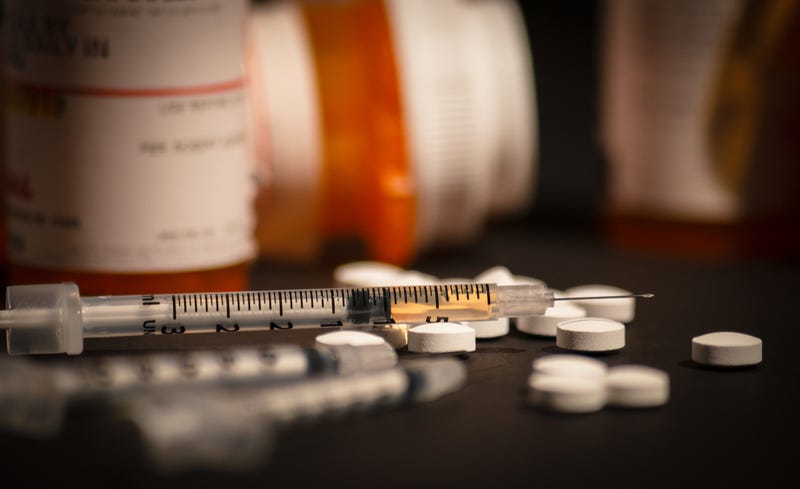
PHILADELPHIA (KYW Newsradio) — The Philadelphia Department of Prisons began to see an increase in drug overdose deaths among people in custody in 2018, according to Commissioner Blanche Carney. Since then, there have been at least 20 such deaths related to drug intoxication.
“These are people who are coming from the communities that have long-standing substance abuse use histories and, even leading up to being readmitted into our custody, have ingested a myriad of polysubstances that are really wreaking havoc on their bodies,” Carney said.
For instance in 2018, three people died within the first 24 hours of being in custody, and four people died in a single eight-day period. The drugs are sometimes smuggled undetected or used by people before they are arrested. Officials say about 70% of the people who enter the jails have a substance use disorder. Many are addicted to opioids. Prison doctors also have to contend with symptoms of drug withdrawal.
“We saw such an increase in our clinical opioid withdrawals that we said we have to offer people options. One of those options is medication-assisted treatment,” said Carney.
Someone in custody is evaluated the day after they arrive, says Dr. Bruce Herdman, chief of medical operations at the city’s Department of Prisons.
“About 90% of them are asked to be in a suboxone program [which treats opioid use disorder], and they're medicated right away. And then they're medicated all the way through their stay,” Herdman said. “The day after they begin medication, they meet with an employee that helps them choose a community program that they can go to on release.”
Herdman says Narcan is dispensed often in the jails to reverse the effects of an overdose. Narcan is effective on fentanyl as well, which is crucial, according to Dr. Dorian Jacobs, site medical director for one of the jails at Riverside Correctional Facility on State Road. She also runs the addiction medicine program through YesCare for all of the Philadelphia site jails.
“The problem comes in when you don't know what you're taking. And that is particularly prevalent in society right now with the introduction of fentanyl,” said Jacobs.
She adds that many people assume they are buying heroin, but it's pretty rare to actually find heroin in their systems.
“I can't actually tell you the last time I saw a patient who reported using heroin who had a positive drug test for heroin, because everything that they are buying is fentanyl,” she said.
Fentanyl is a much stronger, more potent opioid. As little as 2 mg can be fatal. Jacobs says the suboxone program is instrumental in not only halting the opioid withdrawal process, but also in decreasing the risk of overdose both inside the jail and after incarceration.
She takes issue with the cap of 275 patients she is allowed to carry on her suboxone waiver at any one time.
“There needs to be more suboxone providers within the jail. I think that probably the biggest hurdle for patients leaving jail on suboxone is not so much the funding for it, but the accessibility of the follow up and encounters after getting out of jail,” Jacobs said.
In Philadelphia, every neighborhood has been hit hard by the substance use and opioid epidemic. In 2020 there were 1,214 drug overdose fatalities, 86% of which involved opioids such as heroin, oxycodone and fentanyl.
“There's no surprise that the opioid epidemic has bled into the jail system,” said Amanda David, interim behavioral health director and chief program officer for Philadelphia’s Department of Behavioral Health and Intellectual Disability Services.
“According to the U.S. Department of Justice, individuals with criminal justice system involvement have much higher rates of substance use disorder and psychiatric disorders than the general population.”
She says the city has been ramping up its drug treatment services.
“One of the things that we are doing is that we're encouraging individuals to test their drugs with fentanyl test strips. That way, they can know if there's a presence of fentanyl in the drugs that they are receiving,” David said.
Mayor Jim Kenney decriminalized test strips last year, furthering his directive to treat addiction as a disease instead of a crime, as fentanyl now contributes to 94% of opioid-related overdose deaths.
For Carney, overdose deaths in jails are taxing not only for the system, but also for the families left behind.
“It's not a one-and-done. It's not a pointing of fingers. We're going to all have to continue to work together, because it's widespread. And you've seen the rapid increase in deaths related to drugs. And so the work is there. The collaboration must continue because people's lives are lost.”



